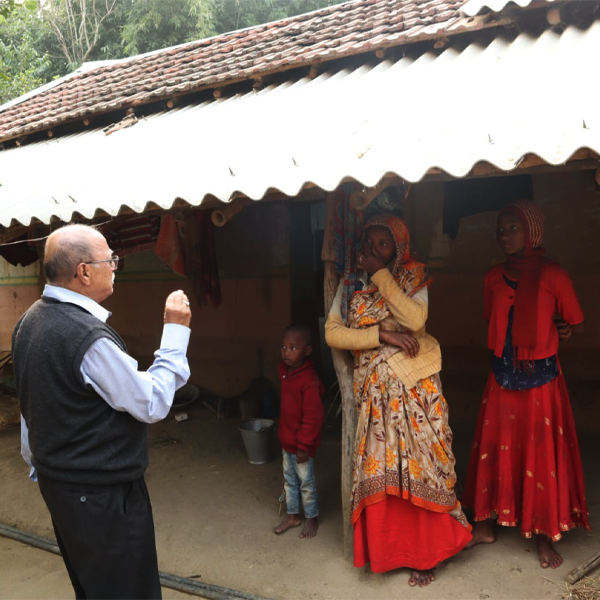Planting trees and fruit orchards is a multifaceted and impactful practice, positively affecting the environment, biodiversity, economy, and overall well-being of communities. fruit orchards, specifically, support agricultural diversity and enhance ecosystems, fostering a healthier environment for both flora and fauna. The presence of trees also helps prevent soil erosion, promoting soil stability and fertility. Furthermore, trees and fruit orchards offer economic advantages. fruit orchards provide a sustainable source of fruits, nuts, and other valuable crops, contributing to local economies and food security. Trees, in general, contribute to the overall aesthetic appeal of landscapes, creating green spaces that improve the quality of life for communities.
WE ARE A NON-PROFIT ORGANIZATION FOCUSED ON GLOBAL REFORESTATION.

.jpeg)
.jpeg)
.jpeg)
.jpeg)
.jpeg)
.jpeg)
.jpeg)
.jpeg)
Gopal Mondal, founder and president of SSBRD Foundation, has been associated with tree work for over twenty two years. The proprietor of Ganga Nursery has worked with various companies, nurserymen and NGOs. He has seen closely the marginal farmers, many of whom have large plots of land but are unable to cultivate due to lack of finance, and the many small farmers who have stopped farming due to crop losses. Educated youth are not interested in agriculture. Such a situation cannot be good for the country and nation. He thinks that the main goal of mankind should be to make this world habitable for living beings. Food, clothing and shelter are the three main and basic elements of human survival. This nature has also enriched itself with the basic elements of human survival with soil, water, air and sunlight. The more a country learns to use these materials with the help of technology, the more it will become self-sufficient in agriculture and help it become a developed country.
The world population is about 7 billion. The scientific community estimates that the world population in 2100 will be 10 to 11 billion. India's current population is 1.3 billion. In 2050 this population will be around 1.60 billion. An estimated 415 million tonnes of food grains will be produced for the increased population. India's current food production is 250 million tonnes. 60 to 70 percent of people in the world's second most populous country depend on agriculture. The Green Revolution in India started in the 1960s. In addition to the benefits of improved agriculture in the green revolution, due to the increase in natural pollution, people have been affected by various diseases in addition to the biosphere. Therefore, the people of the world have to think a new about natural and organic agriculture. Close integration of agriculture, science and technology in school and college education is necessary for the socio-economic development of the people of India. Most of India's population is dependent on agriculture. Today's school-college students will depend mostly on agriculture in the future. Therefore, more intensive integration of agricultural science in school and college education is necessary to realize employment opportunities in agro-based cottage industries and small scale industries. As a result unemployment problem can be solved in populous country like India.
Realizing this, "SSBRD Foundation" constituted an Expert Committee consisting of retired agricultural experts from IIT Kharagpur, Ramakrishna Mission Narendrapur and some others. The main objective is to make farmers self-reliant in organic farming of fruits, vegetables and other crops through training , guidance and advance technology support. Only through agroforestry system, the greening of the country will increase and food crisis can be tackled and the country can be freed from environmental pollution. SSBRD Foundation is working tirelessly towards this goal. Your cooperation is essential.We are committed to the mantra "Sabuj Bharat Healthy Manav".
We will build a green India - that is our core commitment.
















We are committed to actively fighting the effects of climate change by increasing green cover and raising awareness through our initiative.
Fruit trees provide an alternate source of income for farmers.
Fruits trees are an excellent source of nutrition.
Native fruit species meet a number of dietary requirements, especially for women & children.
Assisting marginal farmers to sell and process their produce. This also addresses forced migration.
Our key focus is to increase green cover by planting native and advanced species which are fast-growing, fruit-bearing & long-lasting.
